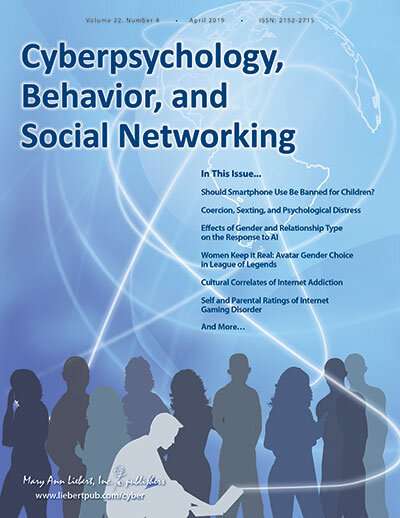Credit: Mary Ann Liebert, Inc., publishers
While sending or receiving nude electronic images may not always be associated with poorer mental health, being coerced to do so and receiving unwanted sexts was linked to a higher likelihood of depression, anxiety, and stress symptoms, according to a new study published in Cyberpsychology, Behavior, and Social Networking.
The article entitled "Sexting and Psychological Distress: The Role of Unwanted and Coerced Sexts" was coauthored by Bianca Klettke and colleagues from Deakin University (Victoria, Australia). The researchers found that receiving unwanted texts and sexting under coercion was also associated with lower self-esteem. Furthermore, males receiving unwanted sexts had poorer mental health outcomes.
"With more of our lives playing out online, sexting and other seemingly private communications may be contributing to an indelible digital footprint. Digital sex is a much-needed topic in today's sexual education programs to ensure responsible use of technologies," says Editor-in-Chief Brenda K. Wiederhold, Ph.D., MBA, BCB, BCN, Interactive Media Institute (San Diego, California) and Virtual Reality Medical Institute (Brussels, Belgium).
More information: Bianca Klettke et al, Sexting and Psychological Distress: The Role of Unwanted and Coerced Sexts, Cyberpsychology, Behavior, and Social Networking (2019). DOI: 10.1089/cyber.2018.0291
Journal information: Cyberpsychology, Behavior, and Social Networking
Provided by Mary Ann Liebert, Inc






















